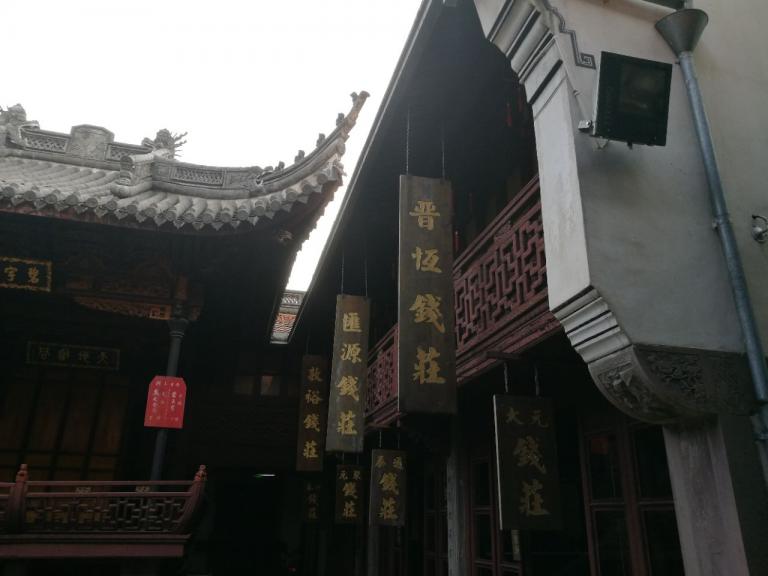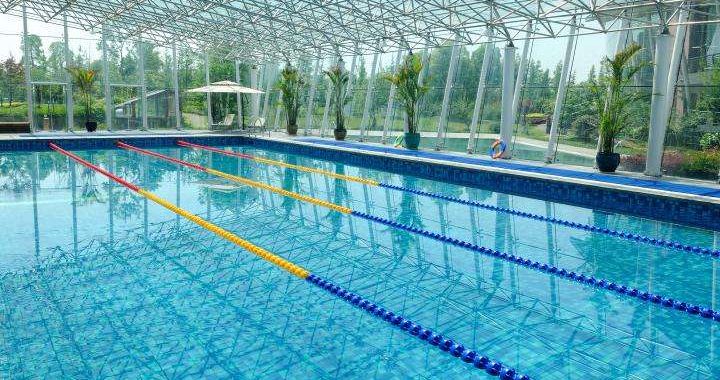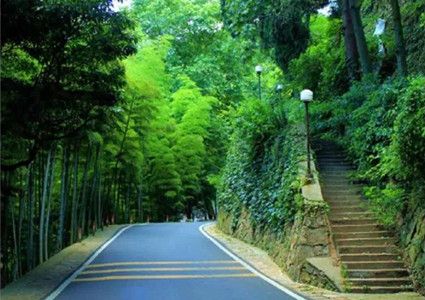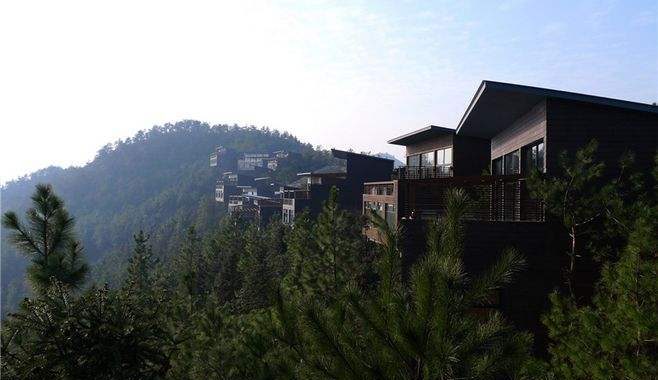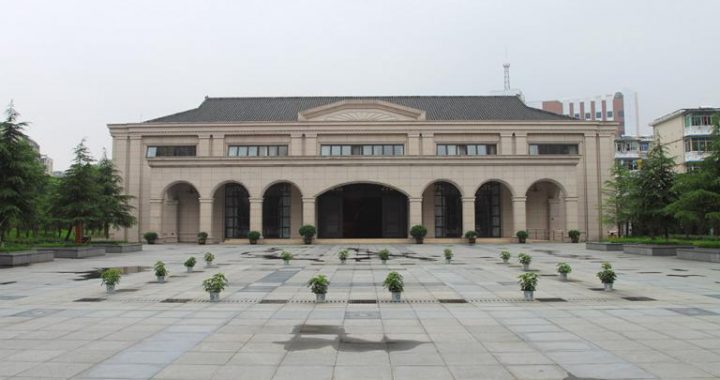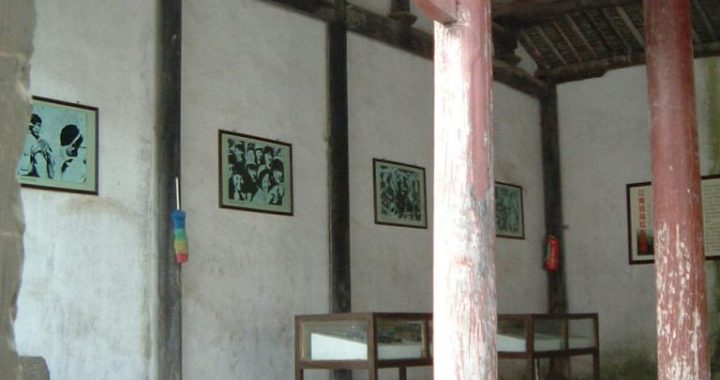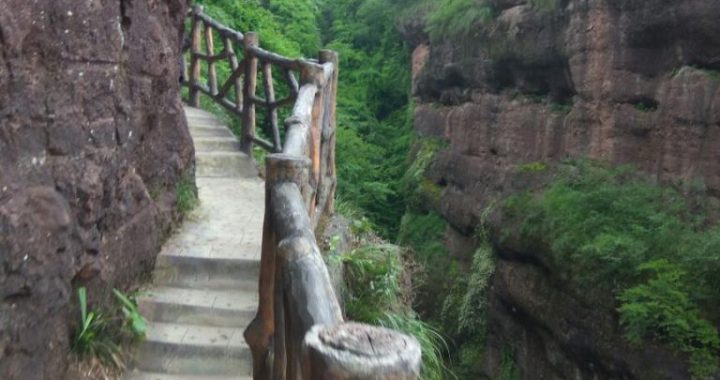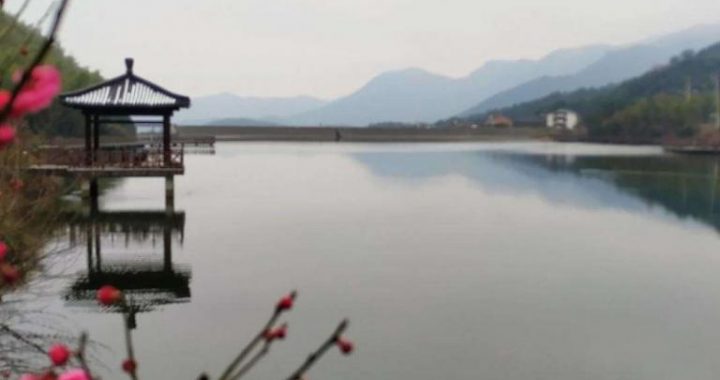Qianye Guild House
5 min readQianye Guild House is located on No.80 Park Road in the center of Wuxing district.It was established 100 years ago,in the 32nd year of Guangxu Period(1906).
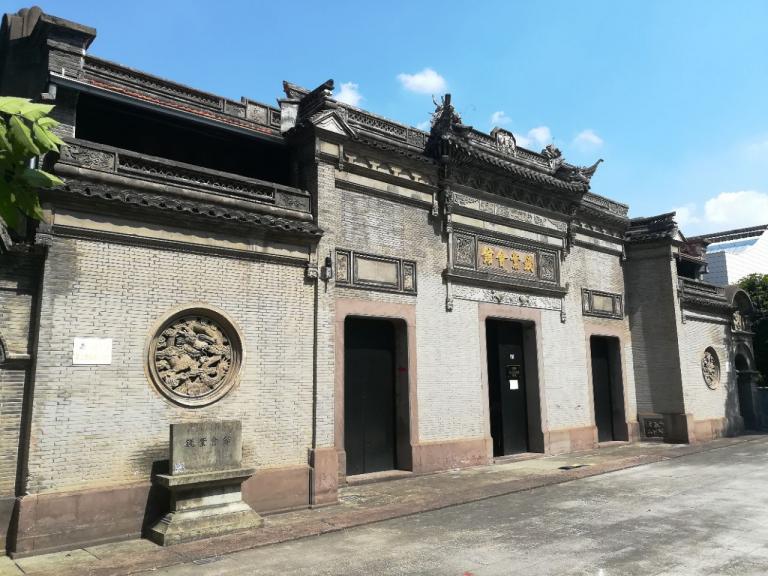
As a rich and populous land,Wuxing has been in an advantageous position in economy and culture. Private money houses emerged and fully developed during the late Qing Dynasty and the early Republic of China.Qianye Guild House was the main site for the locals to take up financial business,and deal with office work.It was also the place for holding meetings,discussing commercial problems,drafting and signing contracts.The most important function of the house was concluding treaties.On the first and 15th day of each month in the Chinese lunar calendar, particularly on the 5th of the first month,a magnificent ceremony of sacrifice was definitely held there.
Therefore, both the architectural design and the decoration of the buildingwere all in majestic splendour and had sumptuous furnishings to match with the house as well. Yet, anything in the world would go changing with the lapse of time, Qianye Guild House is no longer used for its original purpose.
As a cultural heritage, the function of the guild house has been changed from economy to culture, but the house with its old architectural style still stands at the original site. Visitors can also worship the God of Wealth there, and trace its history back to the early financial industry and the banking industry in Huzhou.
Qianye Guild House covers an area of nearly 6,000 square meters. The design and lay-out present a typical style of gardens in the southern Yangtze Delta. Its layout with 3 imaginary axies is rather distinctive. The main building sits at the central axis. The Sedan Chair Hall is in its front, followed by the Wusheng Hall and Xuantan Palace. Along with the eastern axis, there is a pond,a rockery,a waterside pavilion and two buildings, one is Baishi Caotang Hall at front, the other is a tea-house at back. Another rockery and pavilions are at the rear of them. By the western axis, visitors can find”God of Wealth Pavilion”,”Jingyuan Hall”, and “Jingxing Ancestral Hall”which sits at the end.
Qianye Guild House has 5 interesting halls with historical and cultural connotations Baishi Caotang means “the Stone Worship Hall”in Chinese.”Bai Shi”derives from a legend about Mi Fu, one of the Four Great Masters during the Northern Song Dynasty, who once worshiped a stone. Baishi Caotang Hall has another name called “Simian Hall”.”Simian”means “four-orientations”in Chinese. Simian Hall indicates that the hall is for entertaining guests from all directions, no matter who is a friend or a passer-by, from near or far. The hall is built in the traditional framework with saddle roof, encircling corridors, and overhanging eaves.
Jingyuan Tang was originally used by the predecessors to discuss the financial affairs at that time. The furniture of the Qing Dynasty in the hall is exquisitely designed and made of rosewood. The outside wall of the hall is touched to a fan-shaped pavilion. The top of the pavilion is decorated with the kylin figure which symbolizes good luck and happiness, and the upper part of the pavilion wall has a bat pattern which symbolizes good fortune.
The hall and the pavilion are quite elegant. The upstairs room of the hall is now for displaying the portraits of the predecessors.
Jingxing Ci was the ancestral hall to enshrine different gods for worship. They were considered as the Gods that brought fortune in the development of Huzhou financial industry. Jingxing ancestral hall looks like a giant piece of carving work, even if the banisters in the hall bear the elaborately carved pattern of ancient copper coins. The whole hall is filled with an atmosphere of convictions. The wood carvings and Chinese characters all imply money, prosperity, success, and reveal the ardently hopes of obtaining a higher position in society as well as coming across good lucks in one’s life.
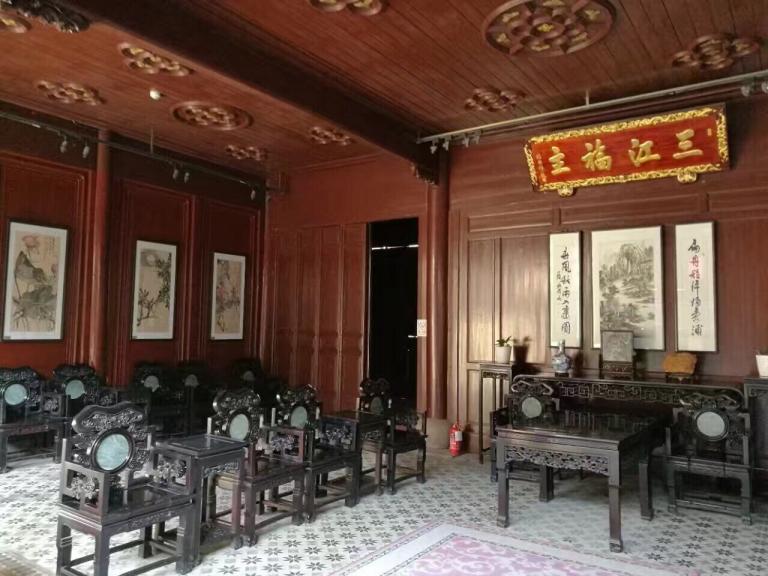
Wusheng Dian was the hall to enshrine Guan Yu, the Loyal God of Wealth. Guan Yu was famous for his loyalty and braveness. He was widely praised and worshiped by the Chinese people in ancient times. He was conferred”King Wuan”and “Saint Guan”, commonly called “Wusheng”or “Guandi”in Chinese history. Chinese culture has extensive and profoundknowledge including Confucianism, Buddhism and Taoism, Guan Yu is still widely accepted and worshiped by all of the three religions, so he has been enjoying high prestige among the Chinese people. It is his high morality that makes him greatly esteemed among businessmen, too.
Xuantan Palace, also named the God of Wealth Hall, is a place to worship Zhao Gongming. There were many believers among the locals.
Zhao Gongming was universally recognized as the Top God of Wealth with the distinguished fame. It was said he once guarded the Xuantan, which used to be the special place for making and refining elixir of life. Because of this reason, it is also commonly called Zhao Xuantan. The local peopleworshipped Zhao Gongming in the hall during prayer-meetings, but now the hall has been changed into a showroom to display some records and materials about the historical events that happened in the development of financial industry of Huzhou.
Qianye Guild House was renovated at the beginning of this century, and it is open to the public. Qianye Guild House is not only a group of buildings for visitors to appreciate its elaborate design, but also a place full of social and cultural value. When visitors have finished the inspection of the interior, they can also move out to have a fine view of courtyard.
Tourists can climb up the rockery by its winding stone-steps, go through its connective holes inside the rockery, have a rest in the waterside pavilions under the leafy shade, and watch into the bottom of an old well to find your own face in water. These settings are seldom seen in modern cities, and offer unexpected funs for tourists. Small and exquisite, it is an authentic man-made landscape of the southern China.
